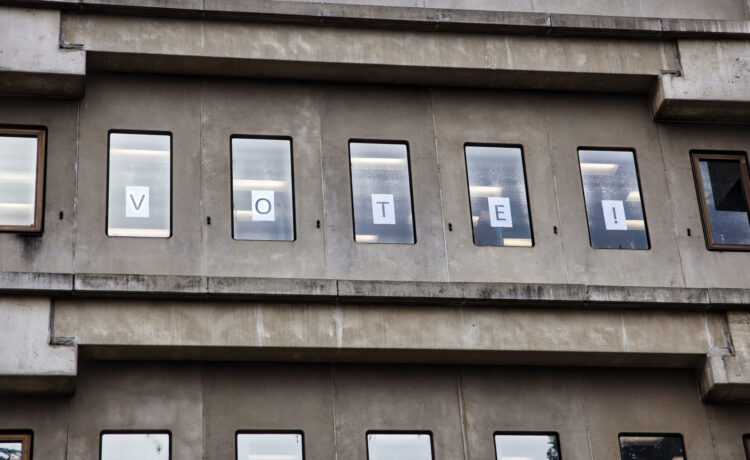Quick Take
Lookout politics columnist Mike Rotkin is in favor of both sales tax increases on the ballot March 5. “If you look around you,” he writes, “it is not hard to see that our city and our county are in desperate need of additional funding.”
Have something to say? Lookout welcomes letters to the editor, within our policies, from readers. Guidelines here.

In the March 5 primary election, if you live in the City of Santa Cruz, you will get to vote on two sales tax measures – Measure K and Measure L. There might be some confusion about this, but nobody will be paying two sales taxes on an item or service that they purchase.
Sales and use taxes, as they are formally known, are paid to the local government in the geographical area where an item or service is purchased. For example, if you purchase an automobile in the City of Santa Cruz, you would pay a sales and use tax that goes to the general fund of the City of Santa Cruz. If you purchase the same automobile from a dealer in the unincorporated area of the County of Santa Cruz, your sales and use tax would go into the general fund of the County of Santa Cruz.
Both the city and the county of Santa Cruz are asking voters to support a small increase in the sales and use tax in their respective jurisdictions. The sales and use tax in the County of Santa Cruz is currently 9%, and if Measure K passes, it will increase ½ cent to 9.5%. The sales and use tax in the City of Santa Cruz is currently 9.25%, and if Measure L passes, it will increase to 9.75%.
Because residents and voters in the City of Santa Cruz are also residents and voters in the County of Santa Cruz, we get to vote on both measures, and we will benefit from the roughly $10 million a year the additional tax will raise in each jurisdiction because we receive both city and county services. For example, the cities in Santa Cruz County do not have health departments and we receive county health services.
It’s worth noting that about half of the funds collected from the sales and use taxes in each jurisdiction will be paid by out-of-town visitors, not local residents. The funds have to be spent locally, and the state cannot take this funding away from local governments.
The sales and use tax in both the city and county will exempt essential goods and services such as groceries, medicine, diapers and feminine hygiene products.
One might reasonably ask, why are we relying on sales and use taxes to address our local needs when they are not the most progressive form of taxation?
Unfortunately, California has preempted local governments from passing income taxes, which might be fairer. Local governments (and schools) used to be funded primarily out of property taxes, but when Proposition 13 moved property taxes to the state in 1978, local governments were forced to raise revenues in other ways.
So now we have utility taxes and sales taxes as the major source of income for local government. The City of Santa Cruz also has an admission tax on anything for which you buy a ticket. Visitors to the Beach Boardwalk pay about half of that tax. These are not the most progressive taxes, but they are all that local government can rely on to provide essential services.
Property tax reform would help address this, but any attempt to modify Prop 13 faces stiff opposition and, although we should work on that, it is not going to happen in the near future.
If you look around you, it is not hard to see that our city and our county are in desperate need of additional funding. Problems like homelessness, affordable housing, public safety, mental health, disaster recovery and parks and road maintenance will require substantial local funds if we hope to see any progress in addressing them.
There is a broad coalition of organizations and public officials supporting Measures K and L.
That makes sense. It’s the right thing to do.














